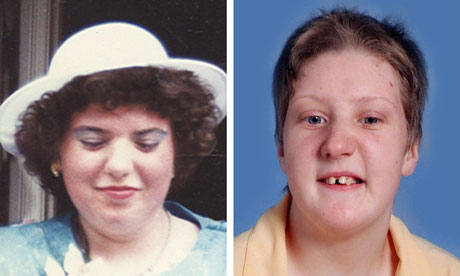
Should there be a specific offence of disability hate crime?
A new report shows that victims of disability hate crime are being let down by the criminal justice system. There is no clear definition of what it constitutes – should a standalone offence for dealing with disability hate crime be created?
CAST YOUR VOTE: HERE
davejmurphy 21 March 2013 11:13am : ‘First person to be charged with this should be Iain Duncan Smith’ http://discussion.guardian.co.uk/comment-permalink/22134333
Victims of disability hate crime are being let down by the criminal justice system and attacks are not being properly recorded, according to a report by three official inspectorates.
A joint study by HM Inspectorate of Constabulary, the Crown Prosecution Service (CPS) and the National Probation Service argues that there is under-reporting of offences but acknowledges there is no “clear and uncomplicated definition” of what constitutes disability hate crime.
Michael Fuller, the chief inspector of the CPS, said the Law Commission had been asked to consider whether there should be a specific offence of disability hate crime.
The issue has received widespread publicity through several high-profile cases such as that of Fiona Pilkington, who killed herself and her disabled daughter Francecca in 2007 after Leicester police failed to investigate the years of torment they endured.
The figures assembled by the inspectorates suggest there is a lack of awareness of the problem and inconsistent reporting standards. The report said: “Many police forces do not have in place an approach that supported disabled victims from the point of call through to the case being considered at court.
“CPS lawyers display a lack of clarity in identifying and analysing offences, and sometimes fail to obtain sufficient evidence from the police in order to identify disability hate crimes.”
Fuller, a former chief constable of Kent, said: “This report finds that in many ways disability hate crime is the hate crime that has been overlooked. The criminal justice system must therefore change to provide an improved service for those with disabilities.”
Under section 146 of the Criminal Justice Act, which came into effect in 2005, courts can increase sentences for those found to have carried out an attack or crime that involved the aggravating factor of being a disability hate crime.
Of 810 CPS files flagged as involving disability hate crime issues, however, only seven recorded that an offender’s sentence had been increased on those grounds – suggesting the powers are being used insufficiently.
Broken down by region, the CPS files suggest that the north-west of England experiences almost three times as much disability hate crime as other areas of the country, with 174 cases. The report’s authors, however, caution that such a disparity is more likely to be a reflection of different recording practices.
Among the recommendations the report makes are:
• Agreement on a “single, clear and uncomplicated definition of a disability hate crime that is communicated effectively to the public and staff”.
• Increased reporting of disability hate crimes.
• Improved training for police officers, prosecutors and probation staff in dealing with disability hate crimes.
The report, Living in a Different World, does not contain examples of the types of offences commonly associated with such crimes nor does it assess whether the problem is becoming more severe.
One difficulty, the report suggests, is that police officers are often reluctant or too embarrassed to ask members of the public whether they are disabled. Incidents may therefore be missed.
Fuller said he believed most forces now had systems in place to record when victims are being repeatedly targeted – a precaution aimed at ensuring that the circumstances that drove Pilkington to her death do not recur.